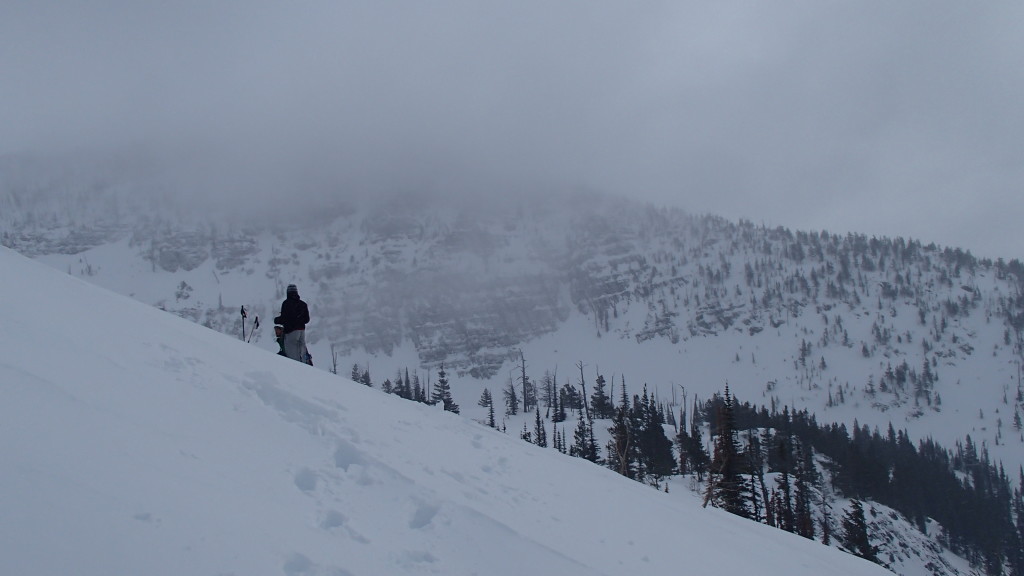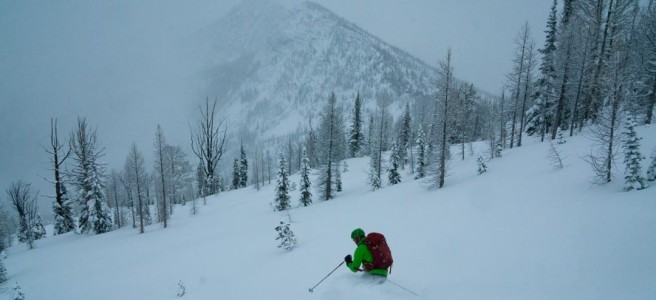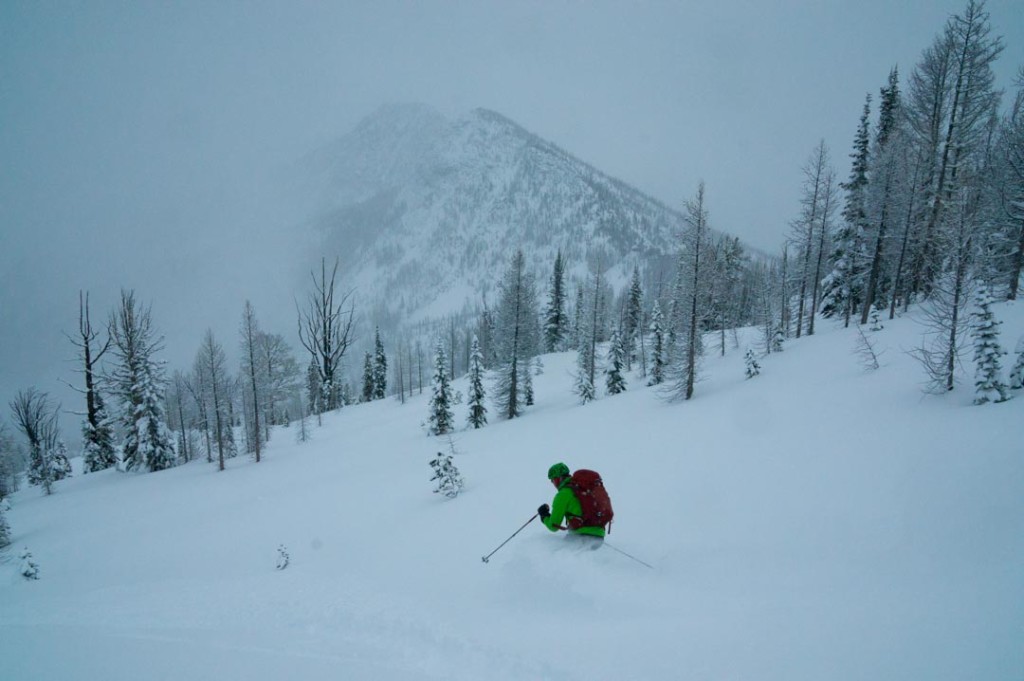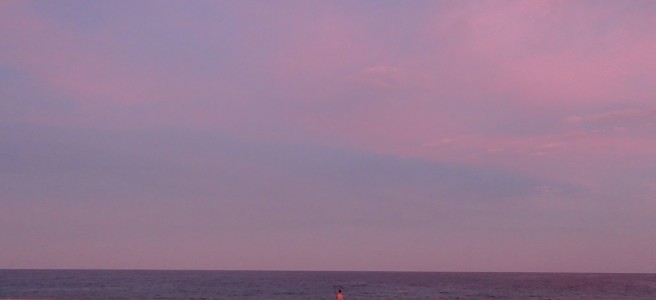“It’s really not as hard as people think,” he said. Two ice cubes floated in amber liquid and clinked against the rim of the glass. He held it between his thumb and middle finger, and punctuated every point with an index finger that he brandished like a foil.
“The secret to happiness,” he said for the third or fourth time since I’d wandered to this archipelago of half a dozen people at the fringe of a crowded party, “is simply to lower your expectations.”
The party was several years ago, I think in Chicago, or California or somewhere, but I found myself thinking about it again as I hiked through boottop powder the other day for another short lap of skiing through excellent snow.
The day before skiing I’d hoped to make it a big day. My usual morning routine involves hitting snooze until the last possible moment, groping in the dark for clean socks, nearly forgetting boots/skins/poles/skis, and leaving the house with neither food nor water (requiring a gas station or grocery stop on the way to the trailhead).
But this time I laid out my gear after dinner and got to bed early. I had snacks and water already packed, and even found my repair/first aid kit. When the alarm went off at 0530 I think I only hit snooze two or three times.
Eight hours later my skis whispered across the snow on a climb back to the top of our short run. It was already after lunch and we’d skied multiple hundreds of vertical feet. It was clear that we would not be hiking anywhere near the 10,000 vert that I’d prepared for the night before.
No one seemed to mind. The unspoken routine in this group of ski partners is for everyone to meet around 7am with an idea of where we’d each like to go. Over coffee and bacon burritos we’ll discuss the weather of the last few days, the avalanche report if it’s recent, any time constraints, and the disparity of our relative gumption. We’ll hem and haw for a while, and by 8 usually have a pretty good idea of where we’re headed and what kind of day it will be.
By the time we consolidate vehicles we’re all on the same page and have a good feel for the social dynamic before we even slip into boots. The morning after I’d laid out my gear and prepared like you’re supposed to, we decided the conditions ruled out steep terrain and settled on a day of conservative tree skiing.
A morning tradition like this sets the tone for good communication and safety. It does not, however, set the tone for doing anything ambitious. The tree skiing the other day was really quite good. We found soft snow blowing in to lee aspects and that wind slabs were easy to avoid. We had a good time and told a lot of jokes.
What we didn’t do was stand on top of anything noteworthy. We didn’t descend anything exciting. Really, nothing we did was worth writing about at all.
When we decided on a plan over coffee and sausage gravy, we categorically rejected expectations for the day. There was no angst about whether or not we’d succeed, because there was no stated goal. There was no risk, because there was no bet. There were simply a few friends wandering around in the woods cracking jokes and skiing powder.

There’s nothing wrong with cracking jokes and skiing soft snow in the same way that there’s nothing inherently wrong in whiling away your working years without risk or creative endeavor. But the unstated foundation of the idea that happiness is got with lowered expectations is that happiness itself is mutually exclusive with ambition.
I don’t know if I agree. I do think that it’s worth thinking about. Recall Annie Dillard’s warning that “how we spend our days is of course how we spend our lives.”
A day of low stress fun with friends is a beautiful thing, but a life without creative expression is heartbreaking. The daily balance of reward and risk extends beyond our morning routine. It’s the foundation for how we will have lived our lives.
Like


